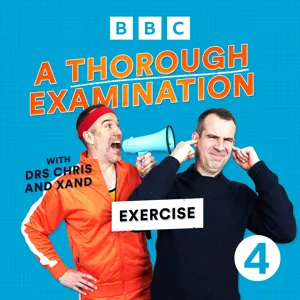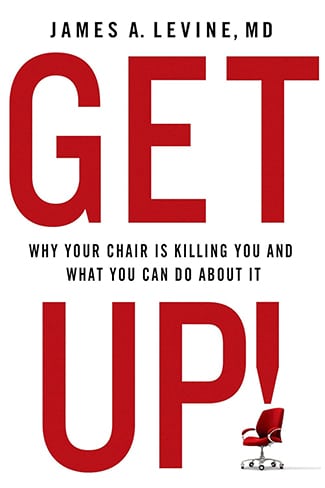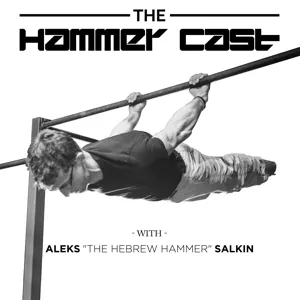Podcast Summary
Finding motivation through unconventional methods: Explore unconventional methods for weight loss and increasing physical activity, such as personalized plans and enjoyable activities, to find what works best for you.
Finding motivation for weight loss or increasing physical activity can be a personal journey. Some people may find success with traditional methods like salads or joining a gym, but for others, like the speaker in this podcast, unconventional methods such as personalized weight loss plans or finding enjoyment in activities like ping pong can be more effective. The speaker shares his experience of losing weight with Noom and rediscovering his love for ping pong, which he found to be a fun and engaging way to be active. He also attempts to inspire his twin brother, Chris, to be more active by explaining the benefits of exercise on the human body and metabolism, but with limited success so far. Overall, the podcast emphasizes the importance of finding what works best for each individual in their weight loss or fitness journey.
Hunter-Gatherer Lifestyles Burn More Calories Than Previously Thought: Research with the Hadza community in Tanzania revealed that physically active hunter-gatherer lifestyles result in significantly higher daily caloric expenditure than previously assumed, with Hadza men burning around 500 calories more daily than an average American.
Evolutionary anthropologist Herman Pontzer's research with the Hadza community in Tanzania revealed that physically active hunter-gatherer lifestyles were associated with significantly higher daily caloric expenditure than previously assumed. Despite common belief, the Hadza men, who walked an average of 10 miles per day, burned approximately 500 calories more daily than an average American. Pontzer's experiment aimed to understand human metabolism and its evolutionary origins, and the Hadza community, with their active lifestyle, were an invaluable data point. Their day-to-day activities, which included hunting and gathering, resulted in higher energy consumption than anticipated, challenging conventional wisdom and offering new insights into human evolution and metabolism.
Challenging the notion of higher energy expenditure in hunter-gatherer societies: Research shows Hadza people burn same calories as Americans, suggesting deeper psychological factors may hinder adoption of regular physical activity.
Despite the common belief that traditional hunter-gatherer societies have significantly higher energy expenditures than modern sedentary lifestyles, research using precise methods to measure human energy expenditure, such as the doubly labeled water method, has shown that Hadza men and women burn the same number of calories as their American counterparts. This finding challenges the notion that physical activity is the primary barrier to adopting a healthier lifestyle. Instead, it suggests that deeper psychological and identity-related factors may be at play. The author reflects on his own struggle to understand this concept and the need for a more profound transformation in character to adopt regular physical activity, rather than just occasional engagement.
The Importance of Exercise Beyond Calorie Burning: Exercise doesn't just help burn calories for weight loss, but also moderates hormones, inflammation, and stress response, making it essential for overall health.
Our bodies have evolved to survive and reproduce, and we spend calories on various tasks every day, from our immune system to our reproductive system to our response to stress. While we may believe that exercise primarily helps us burn calories to lose weight, Herman's research suggests otherwise. Instead, exercise moderates our hormone levels, inflammation levels, and response to stress, making it a crucial component of a healthy lifestyle. Even though we may not burn as many calories as we think during physical activity, the benefits of regular exercise far outweigh the potential weight loss. Furthermore, research from various communities around the world, including Tanzania, Bolivia, and Ecuador, shows that the number of calories burned daily is consistent regardless of the environment or level of activity. This challenges the common belief that being highly active leads to greater calorie expenditure.
Engage in physical activity to manage inflammation and optimize body function: Regular exercise redirects energy from harmful inflammatory processes, enhances overall health, and prevents chronic diseases.
Regular exercise plays a crucial role in managing inflammation and freeing up energy for optimal body function. By engaging in physical activity, we can redirect energy away from harmful inflammatory processes and calibrate our bodies to their natural, evolved state. This not only enhances overall health but also helps prevent chronic diseases such as heart disease, strokes, and cancer. Furthermore, finding enjoyable activities that align with personal interests can help individuals overcome feelings of wasting time and foster a healthier, more balanced lifestyle. Observing others who prioritize fitness can serve as motivation and inspiration to incorporate exercise into daily routines.
Balancing Exercise and Rest for Optimal Health: Find a balance between regular physical activity and rest for optimal health, avoiding extreme exercise or sedentary lifestyles.
Our bodies require a balance between exercise and rest for optimal health. While extreme exercise can be impressive, it can also lead to dangerous conditions like overtraining syndrome. On the other hand, a sedentary lifestyle is also detrimental to health. The ideal is to find a balance where the body spends enough calories on essential functions like immune system and not too much on exercise or inactivity. Chris and the speaker have been discussing the importance of regular physical activity and the negative health effects of sedentary lifestyles. The Hadza people, known for their active lifestyles, serve as an example of optimal health. However, it's not necessary to emulate their lifestyle exactly, but rather aim for regular physical activity throughout the day. The Glasgow study on mail carriers getting 17,000 steps a day highlights the benefits of such activity levels. To address the health crisis, it's important to treat both the activity and diet crises as separate issues and find ways to incorporate more physical activity into daily life.
Exercise and diet are distinct factors for health: Exercise and diet are unique contributors to health, not interchangeable solutions. Exercise reduces inflammation, stress, and anxiety beyond weight loss.
Exercise and diet are two separate issues that need to be addressed individually. The idea that exercise and diet are interchangeable solutions to weight issues can let individuals and food producers off the hook. Hermann's concept, called the constrained energy expenditure model, suggests that exercise doesn't just help with weight loss but also reduces inflammation, stress, and anxiety. Seeing people exercise outdoors, like at the Steel Warriors gym, can be inspiring and remind us of the benefits beyond just weight loss. Calisthenics, a form of outdoor bodyweight training, is an example of precise and effective exercise. It's important to recognize the unique benefits of both exercise and diet in maintaining overall health.
Discovering the benefits of calisthenics communities: Calisthenics communities offer a more engaging and supportive training environment, allowing individuals to learn new skills and progress with the help of experienced practitioners and a supportive community.
Working out in a calisthenics community offers a more engaging and supportive experience compared to traditional gym settings. During a conversation between Chris and George, Chris expressed his preference for calisthenics training due to the strong sense of community and the opportunity to learn new skills together. George, an experienced calisthenics practitioner, demonstrated various moves, including the frog pose, to help Chris progress towards more advanced techniques like a handstand. This hands-on approach, combined with encouragement and motivation from George and the community, allowed Chris to make significant progress. The experience resonated with Chris, who had been inspired by their conversation about hunter-gatherer lifestyles and the desire to explore more primal forms of fitness. This encounter served as a turning point for Chris, leading him to engage in regular calisthenics training and find joy in the process.
Exploring the Connection to Nature and Joy through Physical Activities: Engaging in outdoor physical activities connects us to nature and brings joy and strength. UnitedHealthcare TriTerm medical plans provide budget-friendly coverage for peace of mind during life transitions.
Our connection to nature and finding activities that bring us joy and strength is a fundamental aspect of human existence. This was explored in the BBC Radio 4 series "Infinite Monkey Cage," where host Chris Smith engaged in a physical activity outdoors, resonating with the idea that it's something we may have evolved to do. The series, which features scientists Brian Cox and Robin Inch, covers various topics such as octopuses, astronauts, and dinosaurs. While the astronauts were present in the studio, the octopus and dinosaurs were less so, but listeners could still enjoy the discussion first on BBC Radio. Additionally, the discussion touched upon the future and how some aspects of life may change, such as the potential role of chatbots as companions. However, there are constants, like the need for health insurance. UnitedHealthcare TriTerm medical plans offer flexible, budget-friendly coverage for individuals in between jobs or during open enrollment periods, providing peace of mind for the unexpected. With access to a nationwide network of doctors and hospitals, these plans offer stability in an ever-changing world.






